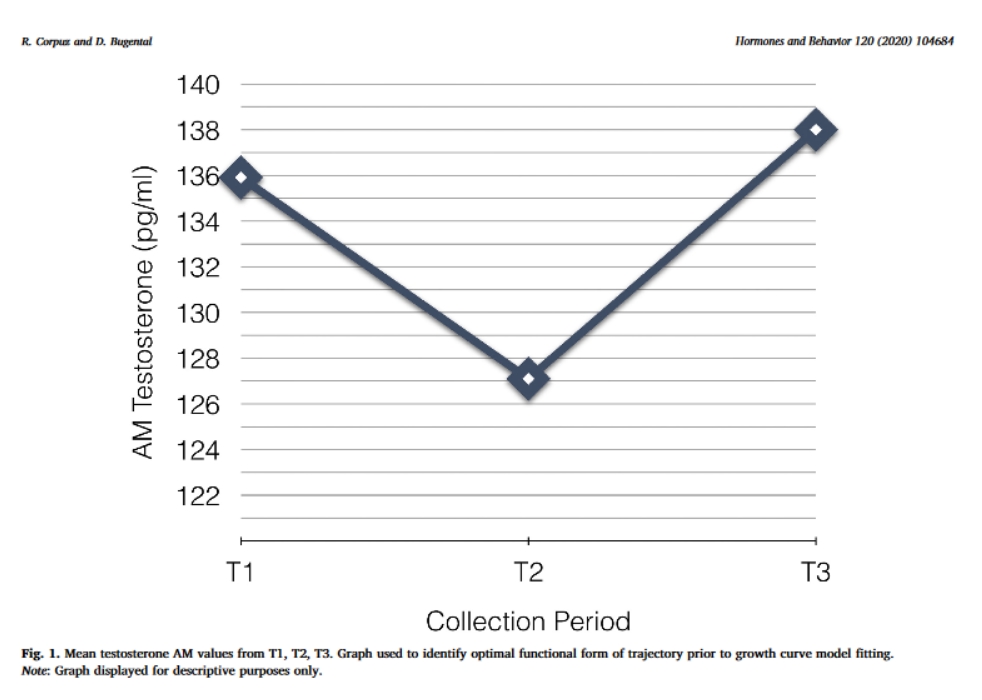Life history and individual differences in male testosterone: Mixed evidence for early environmental calibration of testosterone response to first-time fatherhood
Randy Corpuza Hormones and Behavior Volume 120, April 2020, 104684
Highlights
• Father's testosterone declines and rebounds after childbirth.
• Harsh and unstable childhood environments influence slopes.
• Events in childhood mattered more than subjective recall of events.
Male testosterone (T) decreases in response to childbirth. Longitudinal support for this has come from samples across cultures. In this study, we look at individual differences in this phenomenon. Utilizing a sample of U.S. fathers, we employ life history theory to investigate the influence of a father's early experience on his neuroendocrine response to fatherhood. We conducted three home visits (n = 226 fathers) from the third trimester of pregnancy to when infants were 10 months old.
In this sample, T declined from the third trimester of (a partner's) pregnancy to the early months of the postnatal period. T recovered to pre-birth levels by the time infants reached 10 months old. We did not find any evidence that one's subjective experience of their early environment could account for any meaningful variability in T calibration. Objective, “event” measures of early harshness (i.e., death of a sibling/friend) and unpredictability (i.e., parent upheaval) each uniquely predicted a younger age of sexual debut. Neither harshness nor unpredictability had any (direct or indirect) effects on T calibration. Age of sexual debut did predict the rate of T recovery from 3 to 10 months postnatal. The younger one's sexual debut, the more accelerated their T ascent during this period. We discuss the potential reasons for, and implications of our mixed results.














